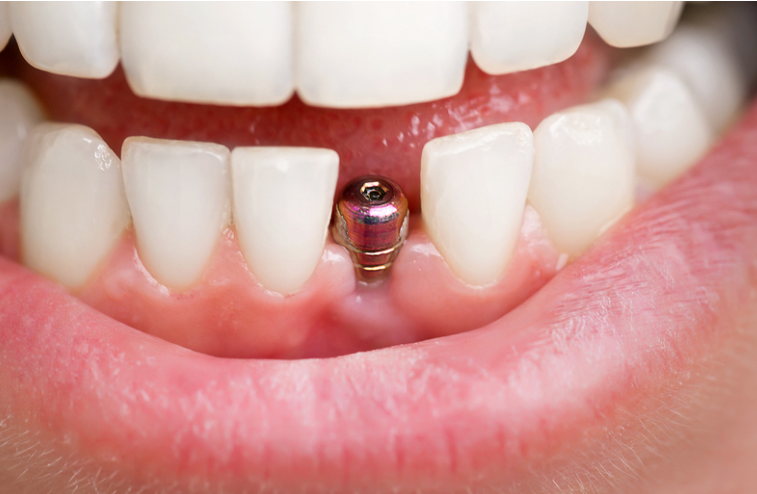The Domino Effect of a Misaligned Jaw on Your Body
When you think of jaw problems, you might picture difficulty chewing or occasional jaw pain. However, what many people don’t realize is that a misaligned jaw can trigger a domino effect of symptoms that extend far beyond your mouth. From chronic headaches to poor posture, the alignment of your jaw plays a vital role in the overall health of your body.
What Is Jaw Misalignment?
A misaligned jaw—also known as malocclusion or temporomandibular joint (TMJ) dysfunction—occurs when the upper and lower jaws do not meet properly. This could be due to genetics, injury, poor oral habits, or dental work. The issue may range from mild to severe, but even a slight misalignment can set off a chain reaction of health problems.
Jaw Alignment and the Musculoskeletal System
Your jaw is connected to a complex network of muscles, ligaments, and nerves that extend into your head, neck, and shoulders. When the jaw is out of alignment, it places uneven pressure on these surrounding structures.
This imbalance often leads to:
- Neck and shoulder pain: Tension in the jaw can pull on neck muscles, resulting in tightness and soreness that radiates through the upper body.
- Poor posture: To compensate for discomfort, the body may subtly adjust its posture—leading to slouching or an uneven spine. Over time, this can result in back pain or spinal issues.
Headaches and Facial Pain
One of the most common complaints associated with jaw misalignment is chronic headaches. The tension caused by an imbalanced bite can strain the muscles near the temples, contributing to tension-type headaches or even migraines.
Other facial issues include:
- Jaw clicking or popping when opening the mouth
- Lockjaw, or difficulty opening and closing the mouth
- Pain near the ears, which may be mistaken for an ear infection
These symptoms can be persistent and often worsen with stress or heavy use of the jaw, such as during chewing or talking for long periods.
Effects on the Nervous System
The trigeminal nerve, which is responsible for facial sensation and motor functions like biting and chewing, runs through the jaw area. When the jaw is misaligned, it can irritate or compress this nerve, leading to:
- Tingling or numbness in the face
- Pain radiating from the jaw to the head or neck
- Difficulty concentrating due to ongoing discomfort
This neural stress can also cause fatigue, sleep disturbances, and mood changes over time.
Breathing and Sleep Disruption
Surprisingly, a misaligned jaw can also affect breathing—particularly during sleep. If the jaw is positioned too far back, it can narrow the airway, increasing the risk of obstructive sleep apnea. This condition causes interruptions in breathing during sleep, leading to:
- Excessive daytime sleepiness
- Snoring
- Decreased oxygen levels, which can affect heart health over time
Treating jaw alignment can sometimes significantly improve sleep quality and reduce these risks.
Digestion and Nutrition
If chewing becomes painful or inefficient due to misalignment, you might unconsciously avoid certain foods or chew improperly. This can affect digestion, as food that isn’t chewed thoroughly puts more stress on the stomach and intestines. Over time, it can contribute to:
- Gastrointestinal discomfort
- Poor nutrient absorption
- Unintentional weight changes
It may even lead to a limited diet, which can affect overall health and energy levels.
See also: Air Purification Strategies to Combat Indoor Contaminants
Emotional and Mental Health Impacts
Living with ongoing pain or discomfort—especially when the cause is not obvious—can take a toll on your mental health. People with chronic TMJ disorders often report:
- Heightened stress and anxiety
- Irritability due to pain or poor sleep
- Depression, especially when symptoms interfere with daily life or go untreated
It’s essential to recognize the emotional component of physical health, especially when chronic pain is involved.
What You Can Do
If you suspect your jaw might be misaligned, it’s important to consult a qualified professional such as a dentist, orthodontist, TMJ specialist, or an oral surgeon in West Valley, Utah. A thorough evaluation—often including a physical exam, X-rays, or bite analysis—can help determine the underlying cause and extent of the misalignment.
Treatment options vary based on severity and may include:
- Orthodontic solutions, such as braces or clear aligners
- Custom mouthguards or night guards
- Physical therapy to relieve muscle tension and improve joint function
- Lifestyle adjustments, like improving posture and managing stress
- Surgical intervention for more advanced or structural cases
Seeking early diagnosis and proper treatment can help stop the domino effect of jaw misalignment and prevent it from developing into broader health concerns.
Final Thoughts
Your jaw may seem like a small part of your body, but its alignment can influence everything from how you sleep to how you feel. A misaligned jaw can set off a cascade of physical and emotional issues that reduce your quality of life. Fortunately, with proper attention and care, you can stop that domino effect and restore both comfort and balance to your body.






